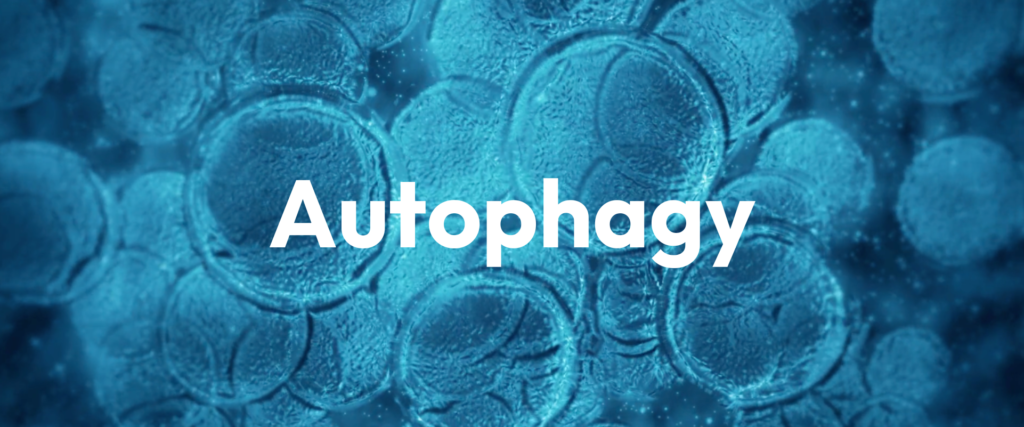Intricate cellular processes keep our bodies functioning and autophagy stands out as a vital player. Derived from the Greek words “auto” (self) and “phagy” (eating), autophagy is the cellular process of breaking down and recycling damaged or unnecessary components. Often referred to as the body’s internal housekeeping system, autophagy plays a crucial role in maintaining cellular health and overall well-being.
Understanding Autophagy
Autophagy is your body’s process of reusing old and damaged cell parts. Cells are the basic building blocks of every tissue and organ in your body. Each cell contains multiple parts that keep it functioning. Over time, these parts can become defective or stop working. They become litter, or junk, inside an otherwise healthy cell.
Autophagy is your body’s cellular recycling system which can be recycled by the cell to generate energy or build new structures. It allows a cell to disassemble its junk parts and repurpose the salvageable pieces into new, usable cell parts. A cell can discard the parts it doesn’t need.
Autophagy is also a quality control system for your cells. Too much junk in a cell can take up space and can slow or prevent a cell from functioning correctly. Autophagy remakes the clutter into the selected cell components you need, optimizing your cells’ performance.#
Why is autophagy important?
The importance of autophagy extends far beyond cellular cleanliness; it plays a critical role in various physiological processes, influencing overall health and longevity. Here are some key benefits associated with autophagy:
- Cellular Repair and Regeneration: By removing damaged organelles and proteins, autophagy facilitates cellular repair and regeneration, promoting tissue health and resilience.
Immune Function: Autophagy defends against infections by removing harmful cell invaders and aiding immune recognition, crucial for our body’s health and disease prevention.# - Metabolic Health: Autophagy is key for metabolic health as it balances fat breakdown and sugar levels, crucial for avoiding obesity, diabetes, and liver issues.#
- Cancer Prevention: Autophagy acts as a tumour suppressor mechanism by eliminating damaged cells and preventing the accumulation of mutations that could lead to cancer development.#
- Longevity: Emerging research suggests that enhancing autophagy may promote longevity by delaying age-related decline and reducing the risk of age-associated diseases.
Stimulating Autophagy
Given its numerous health benefits, there is growing interest in strategies to enhance autophagy. While the body naturally activates autophagy in response to various stimuli such as nutrient deprivation, exercise, and cellular stress, certain lifestyle factors can also promote autophagy.
- Exercise: Physical activity, particularly endurance exercise, has been shown to enhance autophagy in various tissues, contributing to its beneficial effects on health.
- Nutrient Optimization Compounds: Certain compounds, such as resveratrol (found in red wine) and spermidine (found in foods like soybeans and mushrooms), have been shown to stimulate autophagy.
- Ketogenic Diet: The ketogenic diet, which is high in fat and low in carbohydrates, has been reported to increase autophagy, possibly due to its effects on cellular metabolism.5
- Sleep and Stress Management: Adequate sleep and stress management are essential for maintaining healthy autophagy levels, as sleep deprivation and chronic stress can impair autophagic activity.
- Certain Foods and medications: Certain foods (like Green Tea, Grape Skin (red wine), Nuts, Onions, Apples, Berries, Turmeric, Soybeans, and Milk Thistle) and medications can also stimulate autophagy through different mechanisms.
Autophagy represents a fundamental cellular process with profound implications for health and longevity. By clearing out cellular debris and promoting cellular repair and regeneration, autophagy plays a crucial role in maintaining tissue homeostasis and defending against various diseases. Understanding the factors that regulate autophagy and adopting lifestyle strategies to enhance its activity may hold promise for optimizing health and promoting longevity in the long term. As research in this field continues to expand, harnessing the power of autophagy could pave the way for novel therapeutic approaches to combat age-related diseases and improve overall well-being.



